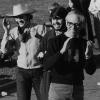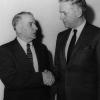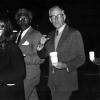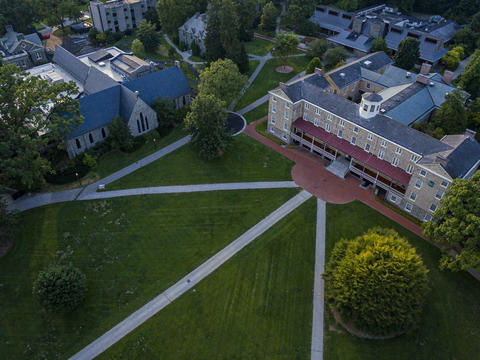John R. Coleman 1921–2016
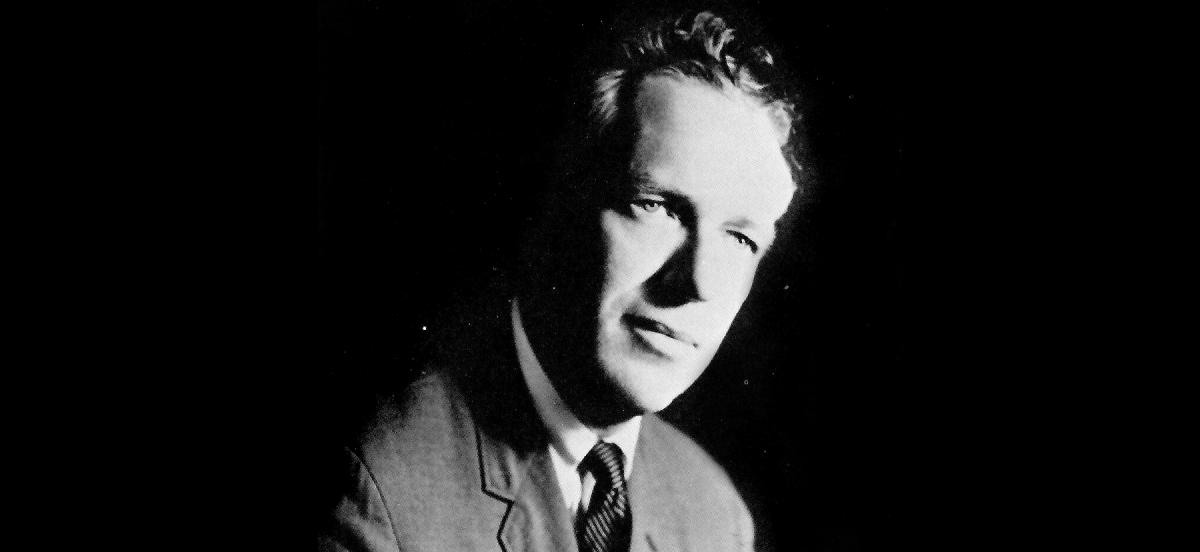
Details
John R. Coleman, Haverford’s ninth president, who led the College from 1967 to 1977, died Sept. 6. He was 95.
"Losing Jack Coleman is like losing a father," said Emeritus Professor of Astronomy Bruce Partridge. "Jack hired me, then mentored me. In the 1970s we fought together for the admission of women to Haverford, a fight that cost him his job. For those turbulent times, he was the ideal president for Haverford. In his brilliance, and his kindness, and his ability to think, and to step, gracefully out of the box, Jack embodied the best of this special place."
A native of Canada, Coleman served with the Royal Canadian Navy during World War II, and received his B.A. from the University of Toronto. He earned an M.A. and Ph.D. in economics from the University of Chicago, and went on to teach economics and labor relations at M.I.T. from 1949 to 1955. Coleman then spent a decade at Pittsburgh’s Carnegie Mellon University, where he became head of the economics department and served as dean of the Division of Humanities and Social Sciences. While at Carnegie Mellon, he taught an experimental college course called "The American Economy" that was broadcast on CBS, hosted a five-part series for CBS titled Money Talks, and spent a sabbatical year in New Delhi, India, as a consultant for the Ford Foundation. He left Carnegie Mellon in 1965 to take a full-time post with the Foundation in New York as its program officer in charge of social development.
Two years later, Coleman took the helm at Haverford, becoming the College’s first non-Quaker president (though he later became a "convinced Friend," and beginning a tenure that would extend through one of the most turbulent eras in the nation’s history; an era in which student protest against the Vietnam War became a defining element of life on U.S. campuses.
In a letter he wrote to alumni at the close of his first year at as president, Coleman described the Haverford students he was getting to know: "They’re a worried generation. They want to believe in the possibility of a more just world order, and they want evidence that we’re moving toward it now. … At Haverford, we’re trying our hardest to listen and to respond constructively and candidly to students. We make no assumptions that one generation, mine or theirs, has all the wisdom."
Coleman, who became known to all on campus as "Jack," kept his office door open and ate with students regularly in the dining room. He also shared their concerns about the escalating war in Vietnam. His own activism on the issue included speaking at a demonstration in Philadelphia, and soliciting 79 other college and university presidents to sign an anti-war statement on Vietnam, which he sent to President Nixon and saw printed on the front page of The New York Times. In May 1970, Coleman helped organize 15 buses to take almost 700 students, faculty, staff, board members, and alumni to Washington, D.C., for a day of lobbying and protest.
As befit the changing times, Coleman shook things up during his years at Haverford. To the displeasure of many alumni, he made the tough decision to officially end Haverford’s languishing football program. He dropped the rule that barred students with long hair and beards from playing on intercollegiate teams. (That decision inspired the angry resignation of the College’s longtime tennis coach and became a national news story.) He also oversaw substantial changes to Haverford's physical campus, as the Dining Center and the North Dorms (Comfort, Jones, and Lunt) were built during his presidency.
Coleman also fostered the development of the arts on campus during his tenure. He supported the creation of the Fine Arts Department, the launch of an art gallery and a chamber music program, and saw five musicians-in-residence appointed to the faculty.
In the spring of 1973, Coleman caused a sensation when word got out that he’d taken a "secret" sabbatical, during which he went incognito to haul trash in a small town in Maryland, make sandwiches in a Boston restaurant, and dig sewer lines in Atlanta. Coleman, who later turned his experience into the book Blue Collar Journal: A College President’s Sabbatical, said he embarked on his gritty research project to explore what he saw as a widening divide between the world of academia and the lives of workers. It was also a way, he told one interviewer, for him to break out of the "lockstep" of his own life. In 1978, Coleman’s book became the basis for a made-for-TV movie titled The Secret Life of John Chapman.
It was during the Coleman years that Haverford launched into what would become known as "the great debate" over coeducation. Just a year into his presidency, a student committee had issued a formal proposal to transform historically all-male Haverford into a coed school, and, increasingly, Coleman came to embrace the idea. He approved a program that brought 39 women exchange students to campus in the fall of 1969, and named a Commission on Coeducation. But after eight years of wrangling over the issue, the Board of Managers made a compromise decision that allowed only for women transfer students. That prompted Coleman’s resignation.
"I think Jack really wrestled with the issue of coeducation, made more challenging and interesting because of the successful partnership with Bryn Mawr," says Catherine Koshland '72, one of those first 39 exchange students and, later, chair of the Haverford College Board of Managers. "Jack really took advantage of the national moment of transformation for many single-sex liberal arts colleges to bring the issue to the fore. The Board, with his leadership, granted exchange women the right to graduate from Haverford. But the path over the next few years was rough, and Jack made the decision to step away. Three years later, in 1980, the College did become a coeducational institution. Although he was no longer the president, coeducation is perhaps Jack's most significant legacy."
Many years later, Coleman wrote that, while he was sad that he did not get to see the change happen during his tenure, he’d come to realize that the Board was right to wait until he was gone: "Bryn Mawr's concerns were moderated, and Haverford was better prepared to treat women as equals with its men."
"In actuality, a president is at the center of a web of conflicting interest groups, none of which can ever be fully satisfied," Coleman once wrote. "He is, by definition, almost always wrong … It’s all very interesting, and not hard to take once he gets over wanting to be right and settles instead for doing the best he can."
"Every time I saw Jack Coleman at College events—and he attended many, and as recently as this year's Alumni Weekend—I always thanked him for making it possible for me to be a student at Haverford," said Ann Figueredo '84, vice president for institutional advancement and a member of Haverford's first fully coed graduating class. "And every time I told him that, he'd break out in a huge smile."
Coleman went on to become president of the Edna McConnell Clark Foundation, where he worked on prison reform issues. He also resumed his undercover research methods, checking in as an inmate or guard in prisons across the country to investigate conditions. He later moved to Chester, Vermont, where he opened a country inn with his son and daughter-in-law. He is survived by his sons, John '75 and Steve '84, daughter Nancy, and seven grandchildren, including Will '07. A memorial service will be held on campus in Founders Great Hall on Sunday, Oct. 2, at 1:00 p.m. You can leave a tribute on his Never Gone page.
More from:

